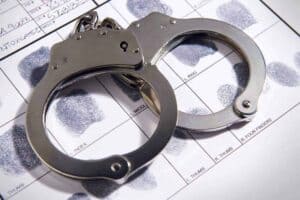The EFF has proposed a ban on alcohol advertising, but the industry believes it could lead to job losses.

A draft bill to ban the advertising of alcohol is being met with opposition from the industry.
The EFF earlier this month introduced a private member’s bill to ban alcohol advertising on the grounds that it is a net negative for public health.
Several unsuccessful attempts have been made in the past to ban alcohol advertising in a country that spent more than R7 billion on alcohol in the final week of 2024.
Almost R38 billion in losses
The EFF said that glamorous advertising hid the realities associated with high alcohol consumption and binge-drinking, such as gender-based violence and road fatalities.
The draft bill also limits branding, company logos and the sponsorship of events.
“Bright and attractive adverts target even young children, who grow up associating alcohol with success, sport and leisure,” EFF parliamentarian Veronica Mente said.
South Africa’s relationship with alcohol has been well established, with Deputy Minister of Social Development Ganief Hendricks providing a post-festive season debrief earlier this year.
ALSO READ: Alcohol at work: Negative impact can also affect colleagues, entire environment
“South Africans spent R7.7 billion on alcohol in the week of 25 December 2024 to 1 January 2025,” he said.
“The annual cost to the country of alcohol abuse alone, in terms of absenteeism, lost productivity, health and welfare costs and alcohol-related crime is estimated at up to 10% of the gross domestic product, or as much as R37.9 billion annually,” Hendricks said.
‘Huge negative consequences’
However, the body tasked with protecting the interests of those facilitating the sale of alcohol is unconvinced that a ban on alcohol advertising would make South Africans forget about alcohol.
“To the EFF’s own admission, their proposal to ban alcohol advertising is based on a mere observation of what might be a linkage between alcohol advertising and alcohol,” Lucky Ntimane, chair of the National Liquor Traders Council, told The Citizen.
“[There is] no scientific evidence whatsoever which poses a serious risk of proposing an intervention which will in all likelihood achieve nothing,” he said.
ALSO READ: How cheap alcohol keeps hurting SA’s poorest
Ntimane asserted that the EFF’s bill could prove counterproductive in a stagnant economy with high levels of unemployment.
“Banning advertising on alcohol will have huge negative consequences with job losses, increased illicit and counterfeit alcohol, depressed revenue for taverns and the alcohol industry in general,” he said.
“To what end are we prepared as a country to go, to destroy the very same jobs that we have demonstrated that we don’t have an ability to create? It does certainly look like self-sabotage,” Ntimane said.
Global trends
The World Federation of Advertisers said that global alcohol advertising spending topped $23 billion (about R397 billion) but represented less than 1% of online ads.
Alcohol brands have also been circumventing laws, cultural beliefs and social responsibility objectives by pursuing the advertising of non-alcoholic beverages.
The Olympics featured its first-ever beer sponsor when Anheuser-Busch InBev — the owner of South African Breweries — signed a deal with the International Olympic Committee to promote Corona Cero at the 2024 Summer Games in Paris.
Likewise, Heineken’s $300 million sponsorship of Formula 1 grants it access to a global audience, as well as markets that have total bans on alcohol.
“By heavily advertising 0.0% beer, Heineken can sidestep alcohol marketing restrictions and secure sponsorship deals that further entrench its brand visibility, particularly in events that attract younger audiences,” said Big Alcohol Exposed (BAE).
“While non-alcoholic beers account for a small fraction of total beer sales, alcohol companies use them as a loophole to gain unrestricted access to marketing channels that would otherwise be off-limits,” BAE said.
NOW READ: SA drinks 4.5 billion litres of alcoholic beverages a year, Treasury to cash in






